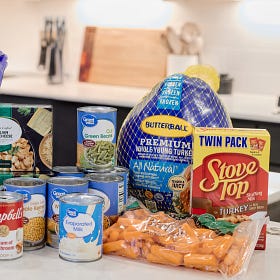Tuesday's Assorted Links
Double majors, meatpacking collusion, scam revenue, free tax filing, and consumer sentiment
Hi y’all! Here are five stories from this week that contained some neat applications of economic principles or are related to teaching:
More students are double-majoring out of fear they won’t be able to get jobs [The Washington Post]
The Department of Justice is investigating price-fixing allegations in the meatpacking industry [NBC News]
Meta projected that 10% of its revenue last year (about $16 billion) would come from ads for scams and banned products [Reuters]
Free tax-filing experiment ended by the Trump administration [The Wall Street Journal]
Consumer sentiment nears lowest level ever as worries build over shutdown [CNBC]
Everyone’s talking about Walmart’s “cheaper” Thanksgiving dinner, but a lot of people missed what really changed: the basket. I priced out last year’s version using today’s data, and the results tell a different inflation story. If someone is telling you their product is cheaper, you should always check to see what’s inside the basket.
The Case of the Cheaper Dinner That Costs More
Thanksgiving is supposed to be a time to gather, to carve a turkey, and to forget about how much groceries cost. After two years of food prices rising faster than family paychecks, this year’s holiday meal was shaping up to be another budget-buster.
Are you an educator looking for ways to introduce this week’s newsletter into your classroom? Sign up for the Classroom Edition of Monday Morning Economist to get assessments and lesson plans delivered straight to your inbox every week.






The Internal Revenue Service is officially ending Direct File, the *free, government-run*
So, not free, got it